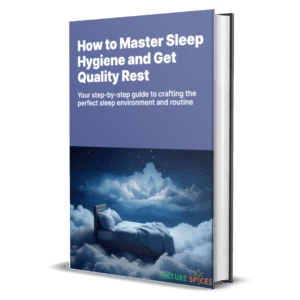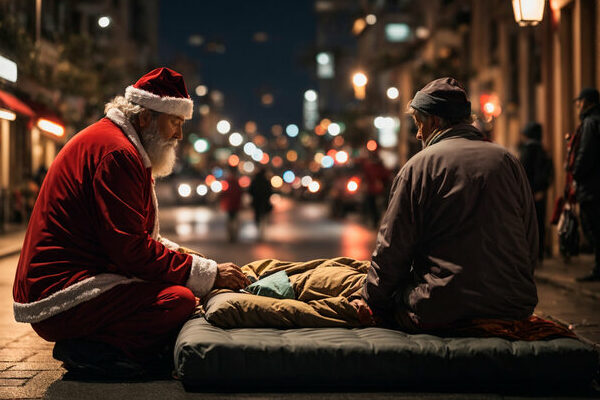Are you tossing and turning at night, counting sheep until the sun comes up? You're not alone. Millions are in the same boat, battling sleep issues that steal their rest night after night. It's a growing problem, and our modern life is to blame. But don't worry, there's hope, and it starts with understanding the issue.
1. The Trouble with Modern Sleep Issues
Once upon a time, our ancestors rose with the sun and slept under the stars. They didn't have buzzing phones or bright screens to keep them awake. But now, we're plugged in 24/7, and it's messing with our sleep. Additionally, our natural rhythms are disturbed by many things like artificial light and other modern interferences. The numbers don't lie – more and more people are joining the ranks of the sleep-deprived each year. Roughly 62% of adults worldwide feel that they don’t sleep well when they go to bed. It's an epidemic that's creeping into every corner of the globe.

2. You are not alone
Feeling like a zombie during the day? Struggling to stay awake at work? You're part of a massive club.
Now, we're turning the spotlight over to you: Have you found a trick that nudges you closer to dreamland, or maybe a routine that's a game-changer for your sleep hygiene? Share your experiences or tips in the comments below. Let's create a community where we can all find solace and solutions in our shared struggles. Remember, by sharing, you're not just finding allies in your battle against sleep issues—you're also becoming a beacon of hope for someone else.
Research shows that a shocking number of people aren't getting the shut-eye they need. And it's not just about feeling tired. Poor sleep is a thief. It robs you of energy, health, and happiness. But here's the thing: you're not alone. Millions are facing the same struggle.
The Facts
The prevalence of sleep disorders is a growing concern globally.
- Over one-third of adults sleep less than the recommended seven hours per night.
- These sleep issues have an enormous economic impact, costing the U.S. more than $411 billion annually due to decreased productivity and increased accidents.
- Up to two-thirds of adults experience occasional insomnia (which is difficulty falling or staying asleep), with 10-15% suffering from chronic insomnia.
- Overall, between 50 million to 70 million people are estimated to suffer from sleep disorders like insomnia, sleep apnea (where breathing repeatedly stops and starts), and narcolepsy (sudden attacks of sleep).

3. The High Cost of Sleepless Nights
Think skipping sleep is no big deal? Think again. When we don't rest, everything suffers. Our brains get foggy. Our bodies ache. We snap at friends and loved ones. And that's just the start. Over time, missing out on sleep can lead to serious health problems. It's a ticking time bomb, and the alarm is set to go off if we don't act.
The Ripple Effect of Sleep Deprivation
Missing out on the recommended seven to eight hours of sleep night after night isn't just about feeling tired. The ripple effects are profound, leading to serious health issues that can drastically affect our quality of life:
- Heart disease and heart failure
- Weakened immune response
- High blood pressure
- Kidney disease
- Mental health issues, including depression
- Diabetes and obesity
The toll on our safety is equally alarming. Drowsiness contributes to an estimated 100,000 car accidents and about 1,500 deaths annually in the U.S. alone. But the impact doesn't stop at personal health and safety; it extends into the economic arena, with sleep deficiency linked to significant productivity losses and health care costs.

4. Get Rid Of Your Sleep Issues
Amid this global wake-up call, there's a silver lining. Developing good sleeping habits can significantly enhance our physical, mental, and emotional well-being. Simple practices like maintaining a regular sleep schedule, optimizing our sleep environment, and moderating our intake of food and drink before bedtime can pave the way for better sleep. Moreover, embracing routines that include exercise and mindfulness practices like meditation can further improve sleep quality.
In an age where the temptation to sacrifice sleep for more screen time or work hours is ever-present, prioritizing sleep is a radical act of self-care. It's about time we recognize sleep for what it truly is—a non-negotiable pillar of our health and well-being.
Take Action Today
So, what are you waiting for? It's time to kick sleep disorders to the curb and wake up feeling refreshed and ready to take on the world. Dive into our eBook and discover the secrets to sleeping like a baby. Your body, your mind, and your loved ones will thank you. Don't let another sleepless night pass you by. Take the first step to better rest today.
Now, we'd love to hear from you. How do your own sleep habits compare with those around the globe? Have you discovered any game-changing strategies or tips for a better night's sleep that you're willing to share? Maybe you've battled with sleep issues and found your way back to restful nights—what worked for you? Dive into the comments below and share your experiences, insights, or even questions you might have about improving sleep hygiene. Let's create a supportive space where we can learn from each other and collectively move towards healthier sleep patterns, one night at a time.
References and Resources
- World Economic Forum: Are you sleeping enough? This infographic shows how you compare to the rest of the world
- Sleep Foundation: 100+ Sleep Statistics




